Filter by
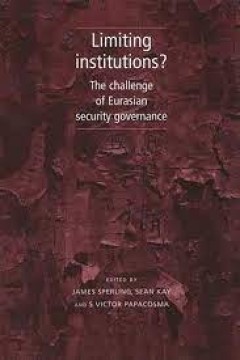
Limiting institutions?: The challenge of Eurasian security governance
Limiting Institutions examines the security threats in Eurasia and the role of institutions in the post-Cold War international environment. It looks at both the crucial aspect of foreign policy as well as a theoretical area of security studies and its impact in the former Soviet States including Russia, Belarus, Armenia, the Ukraine and Moldova. The first section addresses the important and var…
- Edition
- -
- ISBN/ISSN
- 9780719066047
- Collation
- -
- Series Title
- -
- Call Number
- -
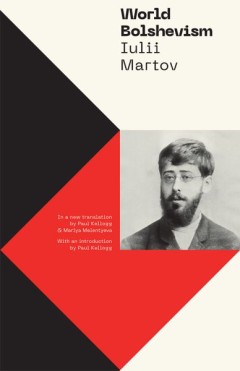
World Bolshevism
Following Martov’s untimely death in 1923, a Russian-language edition of one of his books, World Bolshevism, was published. But it was only in 2000, after decades of extreme censorship, that parts of the book were legally published in Russia. In English, this work has reached the public in pieces, often as a part of pamphlets with limited circulation. This edition, which includes an introduct…
- Edition
- -
- ISBN/ISSN
- 9781771992732.01
- Collation
- -
- Series Title
- -
- Call Number
- 194 pages

Truth Behind Bars” Reflections on the Fate of the Russian Revolution
Paul Kellogg uses the story of Vorkuta as a frame with which to re-assess the Russian Revolution. In particular, he turns to the contributions of Iulii Martov, a contemporary of Lenin, and his analysis of the central role played in the revolution by a temporary class of peasants-in-uniform. Kellogg explores the persistence and creativity of workers’ resistance in even the darkest hours of aut…
- Edition
- -
- ISBN/ISSN
- 9781771992459.01
- Collation
- -
- Series Title
- -
- Call Number
- 6x9, 440 pages
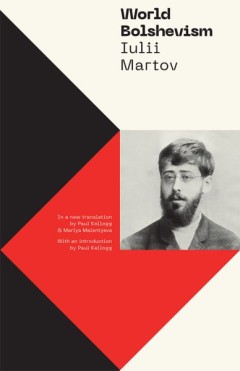
World Bolshevism
Following Martov’s untimely death in 1923, a Russian-language edition of one of his books, World Bolshevism, was published. But it was only in 2000, after decades of extreme censorship, that parts of the book were legally published in Russia. In English, this work has reached the public in pieces, often as a part of pamphlets with limited circulation. This edition, which includes an introduct…
- Edition
- -
- ISBN/ISSN
- 9781771992732.01
- Collation
- -
- Series Title
- -
- Call Number
- 194 pages
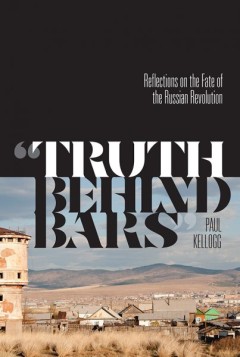
Truth Behind Bars” Reflections on the Fate of the Russian Revolution
Paul Kellogg uses the story of Vorkuta as a frame with which to re-assess the Russian Revolution. In particular, he turns to the contributions of Iulii Martov, a contemporary of Lenin, and his analysis of the central role played in the revolution by a temporary class of peasants-in-uniform. Kellogg explores the persistence and creativity of workers’ resistance in even the darkest hours of aut…
- Edition
- -
- ISBN/ISSN
- 9781771992459.01
- Collation
- -
- Series Title
- -
- Call Number
- 6x9, 440 pages

World Bolshevism
Following Martov’s untimely death in 1923, a Russian-language edition of one of his books, World Bolshevism, was published. But it was only in 2000, after decades of extreme censorship, that parts of the book were legally published in Russia. In English, this work has reached the public in pieces, often as a part of pamphlets with limited circulation. This edition, which includes an introduct…
- Edition
- -
- ISBN/ISSN
- 9781771992732.01
- Collation
- -
- Series Title
- -
- Call Number
- 194 pages
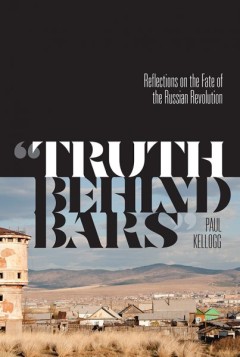
“Truth Behind Bars” Reflections on the Fate of the Russian Revolution
Paul Kellogg uses the story of Vorkuta as a frame with which to re-assess the Russian Revolution. In particular, he turns to the contributions of Iulii Martov, a contemporary of Lenin, and his analysis of the central role played in the revolution by a temporary class of peasants-in-uniform. Kellogg explores the persistence and creativity of workers’ resistance in even the darkest hours of aut…
- Edition
- -
- ISBN/ISSN
- 9781771992459.01
- Collation
- -
- Series Title
- -
- Call Number
- 6x9, 440 pages
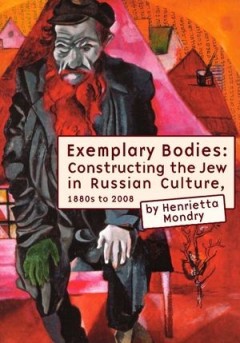
Exemplary Bodies Constructing the Jew in Russian Culture, 1880s to 2008
Exemplary Bodies: Constructing the Jew in Russian Culture, 1880s to 2008 explores the construction of the Jew’s physical and ontological body in Russian culture as represented in literature, film, and non-literary texts from the 1880s to the present. With the rise of the dominance of biological and racialist discourse in the 1880s, the depiction of Jewish characters in Russian literary and cu…
- Edition
- -
- ISBN/ISSN
- 9781934843390
- Collation
- -
- Series Title
- -
- Call Number
- -
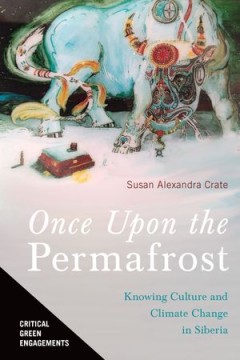
Once Upon the Permafrost : Knowing Culture and Climate Change in Siberia
Once Upon the Permafrost is a longitudinal climate ethnography about “knowing” a specific culture and the ecosystem that culture physically and spiritually depends on in the twenty-first-century context of climate change. The author, anthropologist Susan Alexandra Crate, has spent three decades working with Sakha, the Turkic-speaking horse and cattle agropastoralists of northeastern Siberia…
- Edition
- -
- ISBN/ISSN
- 9780816541546
- Collation
- -
- Series Title
- -
- Call Number
- 305.894 CRA o
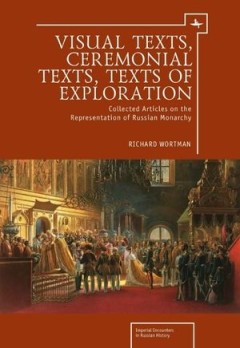
Visual Texts, Ceremonial Texts, Texts of Exploration: Collected Articles on t…
Visual Texts, Ceremonial Texts, Texts of Exploration continues the work begun in Russian Monarchy: Representation and Rule, which analyzed the interplay between the symbolic representations of Russian monarchs and the legal and institutional instruments of their rule. The articles in this volume examine the texts that, through various media, revealed the myths and scenarios conveying the goals …
- Edition
- -
- ISBN/ISSN
- 9781618113474
- Collation
- -
- Series Title
- -
- Call Number
- -
 Computer Science, Information & General Works
Computer Science, Information & General Works  Philosophy & Psychology
Philosophy & Psychology  Religion
Religion  Social Sciences
Social Sciences  Language
Language  Pure Science
Pure Science  Applied Sciences
Applied Sciences  Art & Recreation
Art & Recreation  Literature
Literature  History & Geography
History & Geography